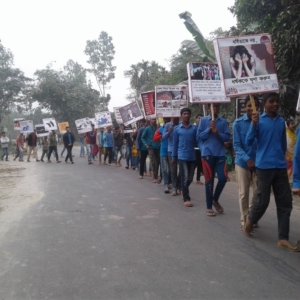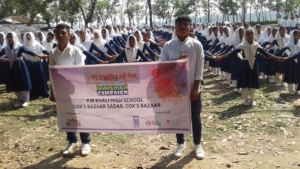 Gender inequality, influenced by other structural factors (e.g. income inequality, racism, inadequate judicial systems), is a root driver of men’s use of violence against women, and also influences patterns of violence against children. Inequitable care burdens on women, for example, when combined with economic stress, are often drivers of use of violence against children by mothers. At the same time, a growing body of research demonstrates that when men are present as supportive and gender equitable caregivers, the benefits to women – and children – are significant and long-lasting. Yet, the evaluations of gender-transformative interventions promoting men’s caregiving and preventing violence against children are still scarce, especially in Bangladesh.
Gender inequality, influenced by other structural factors (e.g. income inequality, racism, inadequate judicial systems), is a root driver of men’s use of violence against women, and also influences patterns of violence against children. Inequitable care burdens on women, for example, when combined with economic stress, are often drivers of use of violence against children by mothers. At the same time, a growing body of research demonstrates that when men are present as supportive and gender equitable caregivers, the benefits to women – and children – are significant and long-lasting. Yet, the evaluations of gender-transformative interventions promoting men’s caregiving and preventing violence against children are still scarce, especially in Bangladesh.
 This is why Center for Men and Masculinities Studies have focused on Men and Masculinities, to engage the men and adolescent boys in positive masculine practices through the community activism. With this micro level practices men can be made aware of the importance of preventing and protesting gender-based violence and to engage in household works. To create a society where gender equality is possible, men must be incorporated in the awareness programs to understand the necessity of gender equality.
This is why Center for Men and Masculinities Studies have focused on Men and Masculinities, to engage the men and adolescent boys in positive masculine practices through the community activism. With this micro level practices men can be made aware of the importance of preventing and protesting gender-based violence and to engage in household works. To create a society where gender equality is possible, men must be incorporated in the awareness programs to understand the necessity of gender equality.
